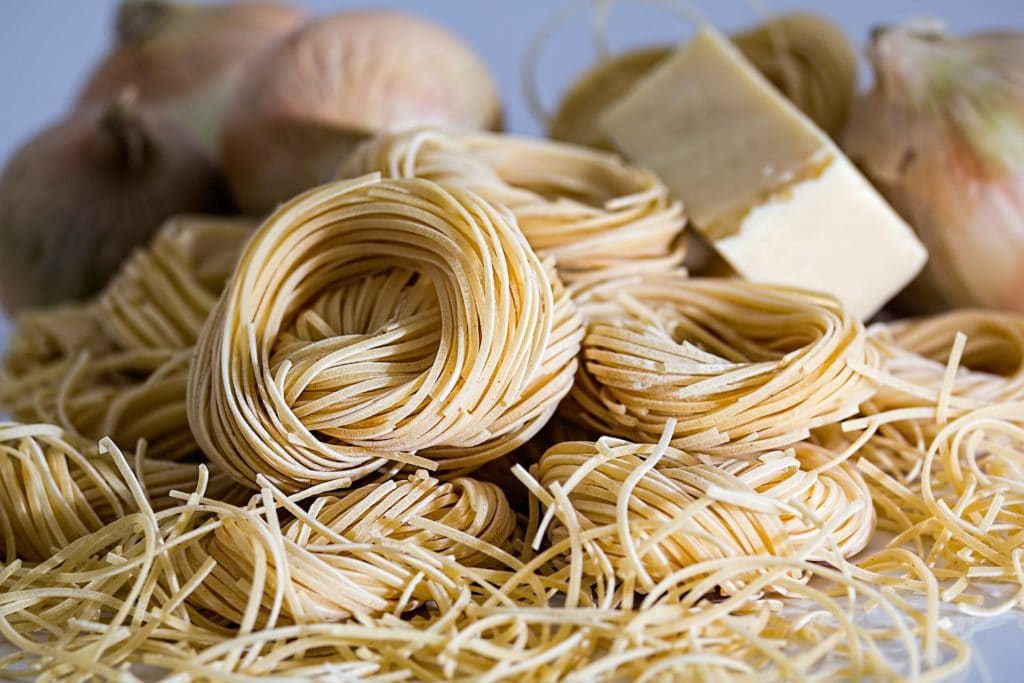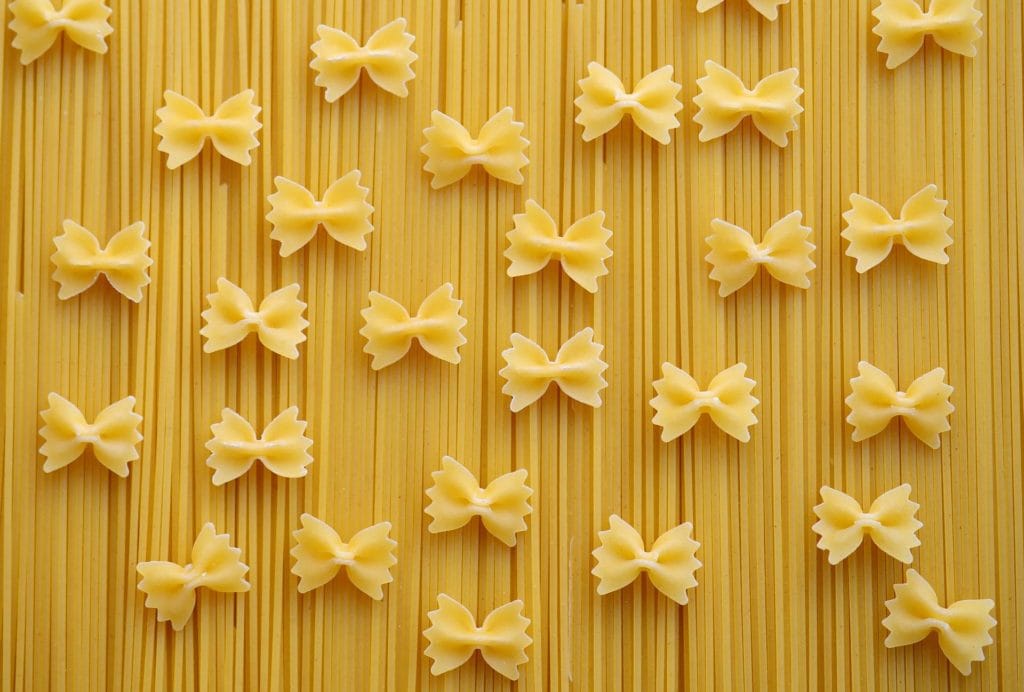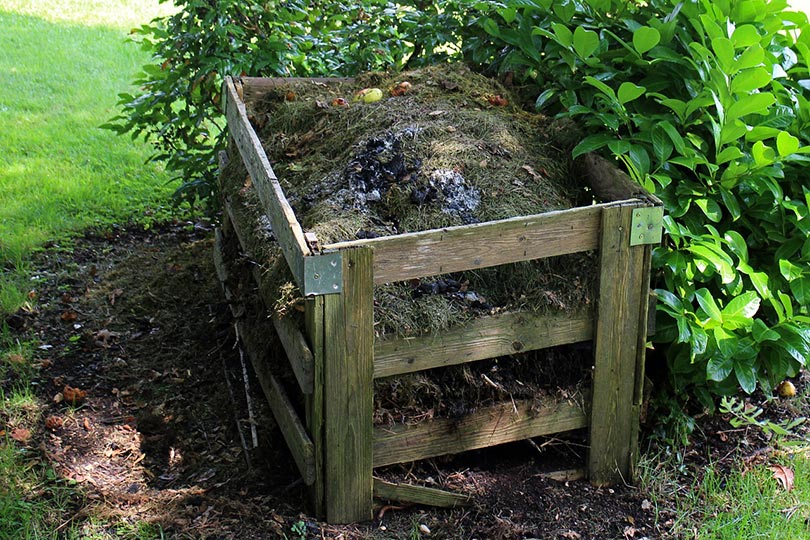Can You Compost Pasta? Facts & FAQ
-
Kristin Hitchcock
- Last updated:

Yes, you can compost pasta easily. In fact, pasta is one of the best items you can compost! It is an organic material that doesn’t necessarily attract animals or pests. Plus, it does hold some of its structure, which encourages composition. If you add a box of uncooked pasta to the compost bin, it is likely going to create lots of air pockets, which are necessary for composting.
Pasta is a great option for a compost bin. Of course, it cannot be the only thing that you add to the compost bin. You’ll need to add a variety of other options to the bin as well, which will help it compost correctly.
Usually, pasta is considered a “green” material, despite the fact that it really isn’t green. You’ll need to add brown materials like cardboard, paper, and leaves. This helps add structure to the pile and helps the greens compost a bit faster.
Can Rice Be Composted?
Rice is very similar to pasta and can also be composted. However, cooked rice is often sticky and does not provide much structure. It will clump up and become one big ball if you throw it all in the compost bin at once, especially because it is sticky. We recommend that you spread it throughout your compost bin, being sure to mix it as you do so.
Luckily, when spread out in this manner, it decomposes very fast. After all, rice is extremely small and it can be broken down quickly, unlike some of the bigger pasta types.
Pests like rodents are not often attracted to rice, though it can happen. If you add enough browns, though, then you usually don’t have to worry about rodents too much. You can add things to the pile that rodents don’t like to keep them away, or you can utilize a rodent-proof container.

Can You Compost Pasta Sauce?
You can compost pasta sauce in many cases. It does depend on what it is made of, of course. Not all pasta sauce is exactly the same.
The main problems you need to consider are pasta sauces that include dairy or meat. When not done properly, these items can smell and encourage pests to visit. Therefore, they are not typically recommended but that does not actually mean that you cannot use them at all.
In small amounts, dairy or meat is not a huge deal. It helps if you add it to the center of the pile, where it will decompose faster. You should also add a small amount at a time, mixing as you do so. The main problem with these items is that they stick together and encourage anaerobic composition, which is not what you want.
Some sauces also include acidic items like tomatoes. While everyone is a bit fearful of adding acidic items to their compost pile, this usually isn’t a huge problem. In many cases, you will not add enough of these items for there to be much of a difference.
You would need to add buckets of tomatoes for it to really matter. You don’t want your compost to be mostly tomatoes, after all. However, some tomato sauce isn’t likely to do much.
Oily pasta sauces can also be a problem, as they do not like to break down easily. For this reason, we do not recommend adding tons of oily pasta to the compost bin. It may coat the entirety of the bin and make it difficult for anything to break down.
Plus, oil and water do not mix. Therefore, it can be challenging to keep the bin moist if you have a lot of oil in it. Be especially cautious if you have a small pile as it is easier to coat everything in oil.
We also recommend diluting sauce with water before adding it to the bin. This will help dilute the ingredients and spread them out more. Plus, it will add moisture to the bin, which is always a good option. Water is necessary for decomposition, after all.

Can You Compost Uncooked Pasta?
Yes. Composting uncooked pasta is actually quite easy. It does not require much planning or special care. Instead, you can simply throw in the box of noodles. Because the pasta is not cooked, it does not attract animals. You are less likely to get pests.
Plus, the pasta should break apart quickly, which will help with decomposition. For these reasons, we generally recommend using dried pasta over cooked pasta. It simply works better in a compost pile.
If you want to be more careful, we do recommend placing the paste in the middle of the pile, which will prevent animals from getting to it. Animals will not dig through a compost pile to consume the stuff in the middle. They only nibble on the outside.
To make decomposition even faster, you can break up the noodles. Smaller pieces are much easier to decompose than larger pieces. Instead of waiting for the pieces to break down naturally, you can help matter a bit by breaking them down by hand.
Conclusion
Pasta is one of the items that are easier to decompose. In fact, you can break down pasta pretty easily in a decomposition pile. It does not require any special steps or considerations. Pests will typically not be drawn to pasta, as it does not smell strong. Plus, it decomposes pretty quickly given its small size.
You can even compost pasta sauce in most cases. Even if it is made with dairy, there is usually not enough pasta sauce for it to matter. Just be sure to pour it towards the middle and mix well. You want it spread out across the other compost.
Dried pasta and rice can also be added to the compost pile. Rice does need to be spread out so that it doesn’t turn into one giant glob. However, it is still pretty easy to compost when compared to other items.
Featured Image Credit: Pixabay
Contents
